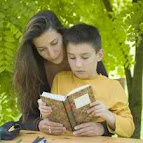The Best Way to Teach Social Stories to Kids on the Autism Spectrum

"What is the best way to teach social stories? Should this be done by parents, a therapist, or in a peer-group setting? And are social stories good resources for the home-schooler?" Indeed, social stories can be effectively used to teach appropriate behavior in a variety of settings. Social stories may be used by parents, therapists, or in peer group settings. And home-schooling parents often use social stories effectively. Social stories are used to address many psychological and social symptoms, including: A lack of imagination in play or expression Consistent shyness, anxiety, and unhappiness Depression during the years of adolescence and early adulthood Difficulty in relationships with others Feelings of isolation from others Obsessions, including irrational fears and anxieties Timidity The Importance of Social Stories Social stories are a teaching device for kids. The stories are used to

